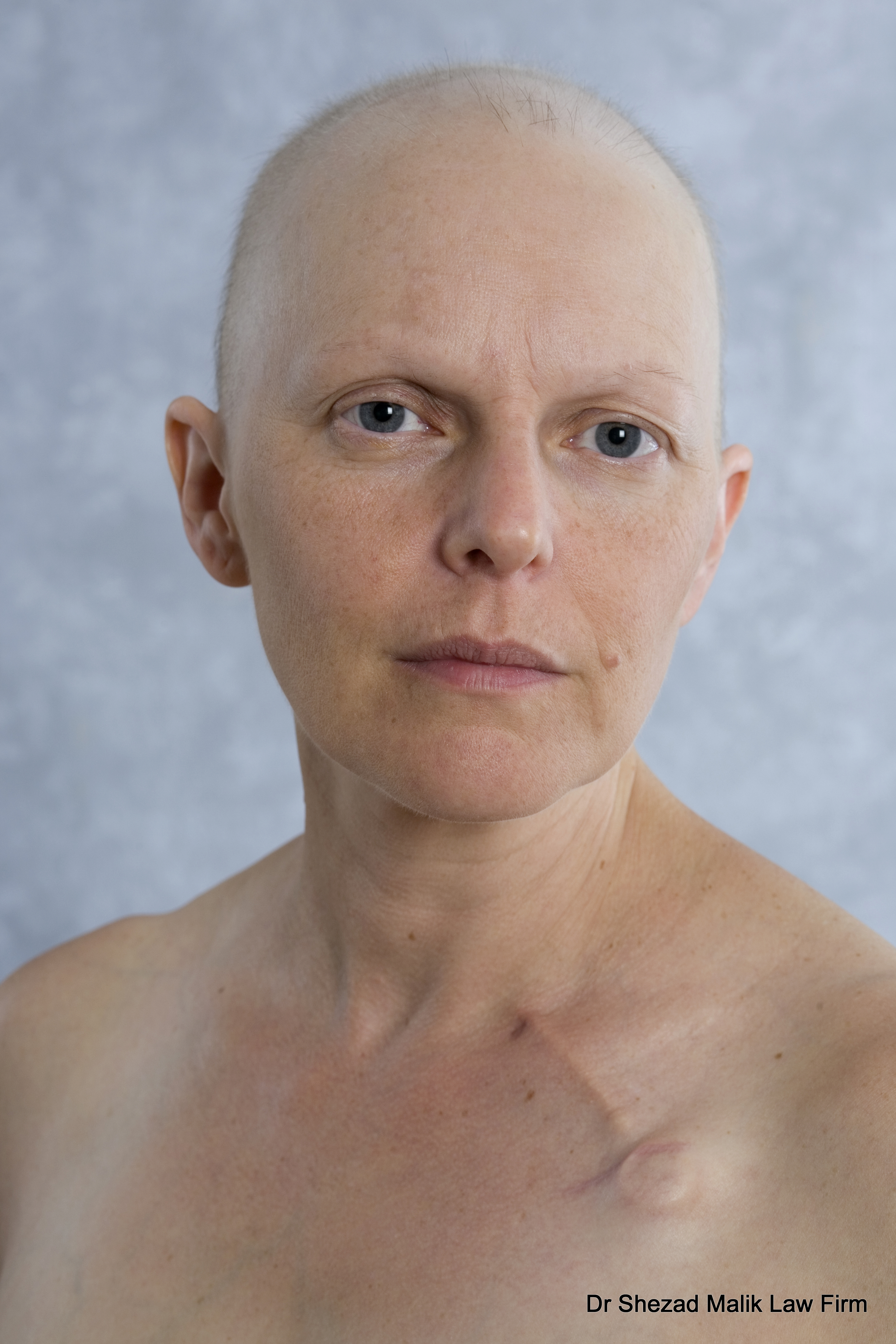Chemotherapy permanent hair loss particularly in the treatment of breast cancer can be devastating. Now Sanofi-Aventis, the maker of a popular intravenous chemotherapy drug, Taxotere, is exposed to several lawsuits alleging that the side effects of Taxotere, may cause permanent hair loss or baldness (Alopecia) in a significant number of women.

Recently, Hattie Carson filed her claim of permanent baldness from Taxotere side effects, in the U.S. District Court for the Northern District of Ohio. Carson, alleges that Sanofi-Aventis failed to adequately warn female breast cancer patients and doctors about the risk of permanent baldness from Taxotere.
According to Carson, she was diagnosed with breast cancer in 2004, and underwent chemotherapy with Taxotere. Carson was diagnosed with permanent hair loss, after her hair did not grow back after 6 months.
Taxotere Permanent Baldness Reports
Alopecia is a common and emotionally devastating side-effect of systemic chemotherapy. Scalp, pubic and axillary hair may be lost, as well as eyebrows and eyelashes, but in most cases, the hair loss is temporary and usually reversible, with complete hair regrowth within the 3–6 months following the chemotherapy cycles.
Recently, in the past few years, many case reports of permanent irreversible post-chemotherapy alopecia, no hair growth after 6 months have been described from Taxotere.
What is Taxotere?
Taxotere (docetaxel) is a cancer medication that interferes with the growth and spread of cancer cells in the body.
Taxotere is used to treat breast cancer, lung cancer, prostate cancer, stomach cancer, and head/neck cancer.
Taxotere is a semi-synthetic cancer drug given in a cocktail of chemotherapy drugs, for the treatment of breast cancer. Taxotere was approved by the FDA in May 1996 for the treatment of patients with advanced or metastatic breast cancer after prior chemotherapy attempts had failed.
Carson claims in her lawsuit, “Although alopecia is a common side effect related to chemotherapy drugs, permanent alopecia is not. Defendants, through its publications and marketing material, misled Plaintiff, the public, and the medical community to believe that, as with other chemotherapy drugs that cause alopecia, patients’ hair would grow back.”
Sanofi-Aventis Warned About Permanent Hair Loss in Europe and Canada
Carson alleges that Sanofi-Aventis warned doctors and patients in Europe in 2005 and in Canada 2012 about the risks of permanent hair loss from Taxotere side effects, but failed to provide such warnings to the U.S. patients and doctors until January 2016. Read the FDA Warning label change in January 2016.
Taxotere Permanent Hair Loss “Disfiguring”
According to Carson, permanent hair loss from Taxotere is disfiguring for women, and that it caused her to suffer great mental anguish, economic damages and that the psychological damage was extensive enough that it caused a loss of work or inability to work.
Taxotere “I look like an 80-year-old, ugly old man”
Taxotere affected women are now warning other permanent hair loss victims in soial media venues. According to a 2010 article in the Globe and Mail, “I had a normal head of hair and I am now completely bald,” said Cynthia MacGregor, 50, of Montreal, who has been diagnosed with alopecia universalis, a loss of all body hair.
According to Shirley Ledlie, 51, of Brittany, France, said: “It’s like having ‘I am a cancer sufferer’ tattooed on your forehead. … I look like an 80-year-old, ugly old man.”
Permanent balding women from Canada, the United States, the United Kingdom and France are calling themselves the Taxotears. They include one Taxoterrorist, the nickname for Ms. Ledlie, who posted pictures of her balding head on the Facebook page of the pharmaceutical company.
“We want every woman who’s been offered Taxotere to know it is a possibility, so it is her choice whether to take the risk or not,” Ms. Ledlie said.






